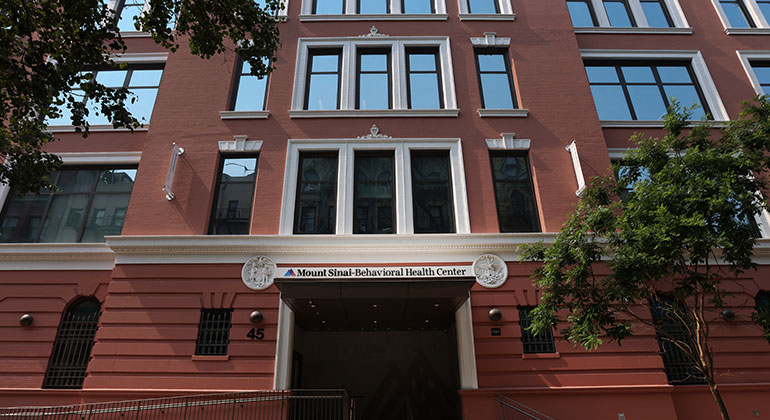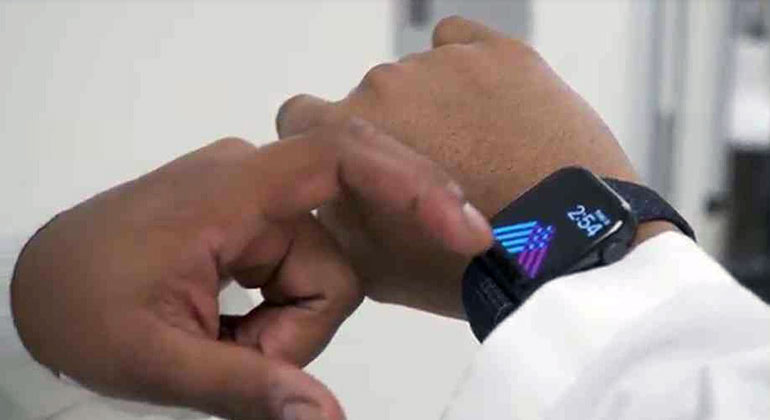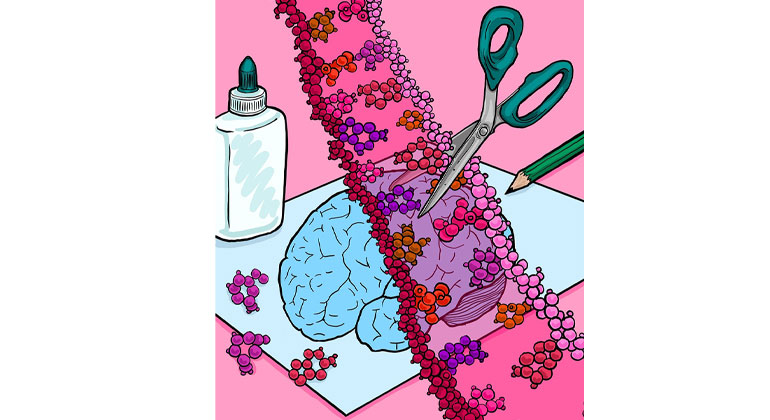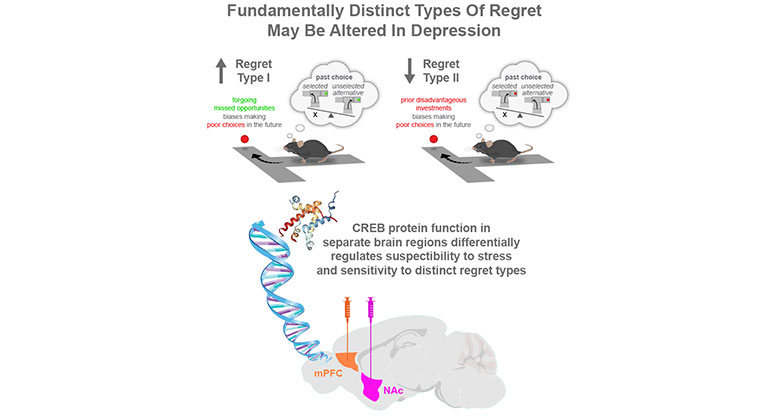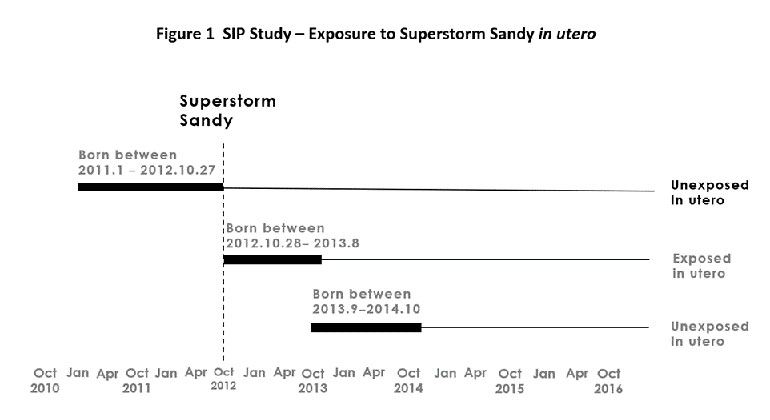Mount Sinai Opens New Center for Tic and Obsessive-Compulsive Disorders
New Division of Tic and Obsessive-Compulsive and Related Disorders (DTOR) Aligns with New Category in the Diagnostic and Statistical Manual
Mount Sinai has officially opened a new center to research tic and obsessive-compulsive disorders (OCD) in individuals of all ages. The opening coincides with a significant revision in the psychiatry field’s manual of mental disorders, which will now recognize OCD with its own category, rather than classifying it as an anxiety disorder.
The center is operated by a new Division of Tic, Obsessive-Compulsive, and Related Disorders (DTOR), created by the Department of Psychiatry at the Icahn School of Medicine at Mount Sinai. The center is located in renovated space at 1240 Park Avenue on 96th Street, where a team of psychiatrists and psychologists see patients in a new clinical space. The patients also have access to ground-breaking clinical trials progressing just down the hall.
Obsessive-compulsive disorder (OCD) and tic disorders are known to be associated in many ways, including overlap of symptoms, genetic vulnerabilities, and neurobiological underpinnings. Both OCD and tic disorders may be associated with other problematic symptoms, such as mood, anxiety and behavioral difficulties, that need to be taken into account in comprehensive treatment planning.
“DTOR is in the vanguard of academic psychiatry because it embraces the concept that tic disorders and OCD frequently overlap and that these are life cycle disorders, not separate child and adult disorders,” said Wayne Goodman, MD, Chairman of the Department of Psychiatry at Mount Sinai and Chief, DTOR. “We are among the first medical centers to put this important concept into practice in a way that improves patient care and research. DTOR also anticipates changes in the upcoming DSM 5 manual, which makes OCD, currently listed under anxiety disorders, a separate mental disorder category.”
DTOR will offer treatments tailored to the individual’s unique diagnosis, age and severity of his/her symptoms. The clinical team also seeks to identify any additional clinical or environmental factors that may contribute to symptom severity or treatment effectiveness in order to provide the most comprehensive and sensitive care.
Adjacent to the new clinical space, DTOR researchers will study OCD and tic disorders and their relationship to each other using a variety of approaches, ranging from genetic analyses to functional brain imaging. Adults with treatment-resistant Tourette’s disorder (TD) will have access to a clinical trial of a promising medication currently used to treat seizures.
Other studies underway at Mount Sinai aim to identify specific genetic factors that play a role in the inheritance of tics, TD, and OCD; to evaluate changes in levels of a neurotransmitter called GABA in the brain of patients with TD; and to investigate changes in brain networks related to TD and OCD.
“The ultimate goal of our studying rare genes and their link to specific OCD and/or tic disorders is to identify new targets for treatment, whether pharmacological or behavioral, ” says Dorothy Grice, MD, Chief, Obsessive-Compulsive and Related Disorders Program.
OCD, which is characterized by recurrent, unwanted and distressing thoughts (obsessions) and repetitive behaviors (compulsions), affects one to two percent of the U.S. population. TD, the most complex among the tic disorders, is identified by repetitive involuntary movements and vocalizations, and affects approximately one percent of the U.S. population.
Barbara Coffey, MD, MS, Director of the Tics and Tourette’s Clinical and Research Program, gives one example of these co-existing disorders: “Approximately one-third of children with Tourette’s disorder continue to suffer from moderate to severe symptoms in adulthood, and most Tourette’s patients also present with other psychiatric disorders including OCD and ADHD.”
In many children with OCD or tics, two different forms of cognitive behavioral therapy—either exposure and response prevention or habit reversal, respectively—are often effective interventions. Medical therapy is another option for some patients. In the most severe and treatment-resistant cases of OCD, a neurosurgical procedure called Deep Brain Stimulation (DBS) may be considered.
DTOR’s clinical faculty of psychiatrists and psychologists includes world renowned specialists: Dr. Goodman; Dr. Coffey; and Dr. Grice.
New DSM 5 Category
Due out in May 2013, DSM-5, which provides a common language and standard criteria for classification of mental disorders, will include a separate category of disorders that contains OCD and so-called related disorders such as Body Dysmorphic Disorder, which involves repetitive body checking, Trichotillomania, which is compulsive hair pulling, and Hoarding Disorder. Dr. Goodman is an advisor to a national committee responsible for this revision, which is a major departure from the current DSM-IV wherein OCD is classified as an Anxiety Disorder.
About The Mount Sinai Medical Center
The Mount Sinai Medical Center encompasses both The Mount Sinai Hospital and Icahn School of Medicine at Mount Sinai. Established in 1968, the Icahn School of Medicine at Mount Sinai is one of the leading medical schools in the United States. The Icahn School of Medicine is noted for innovation in education, biomedical research, clinical care delivery, and local and global community service. It has more than 3,400 faculty members in 32 departments and 14 research institutes, and ranks among the top 20 medical schools both in National Institutes of Health (NIH) funding and by U.S. News & World Report.
The Mount Sinai Hospital, founded in 1852, is a 1,171-bed tertiary- and quaternary-care teaching facility and one of the nation’s oldest, largest and most-respected voluntary hospitals. In 2012, U.S. News & World Report ranked The Mount Sinai Hospital 14th on its elite Honor Roll of the nation’s top hospitals based on reputation, safety, and other patient-care factors. Mount Sinai is one of just 12 integrated academic medical centers whose medical school ranks among the top 20 in NIH funding and by U.S. News & World Report and whose hospital is on the U.S. News & World Report Honor Roll. Nearly 60,000 people were treated at Mount Sinai as inpatients last year, and approximately 560,000 outpatient visits took place.
For more information, visit http://www.mountsinai.org.
Find Mount Sinai on:
Facebook: http://www.facebook.com/mountsinainyc
Twitter @mountsinainyc
YouTube: http://www.youtube.com/mountsinainy
About the Mount Sinai Health System
Mount Sinai Health System is one of the largest academic medical systems in the New York metro area, with 48,000 employees working across seven hospitals, more than 400 outpatient practices, more than 600 research and clinical labs, a school of nursing, and a leading school of medicine and graduate education. Mount Sinai advances health for all people, everywhere, by taking on the most complex health care challenges of our time—discovering and applying new scientific learning and knowledge; developing safer, more effective treatments; educating the next generation of medical leaders and innovators; and supporting local communities by delivering high-quality care to all who need it.
Through the integration of its hospitals, labs, and schools, Mount Sinai offers comprehensive health care solutions from birth through geriatrics, leveraging innovative approaches such as artificial intelligence and informatics while keeping patients’ medical and emotional needs at the center of all treatment. The Health System includes approximately 9,000 primary and specialty care physicians and 11 free-standing joint-venture centers throughout the five boroughs of New York City, Westchester, Long Island, and Florida. Hospitals within the System are consistently ranked by Newsweek’s® “The World’s Best Smart Hospitals, Best in State Hospitals, World Best Hospitals and Best Specialty Hospitals” and by U.S. News & World Report's® “Best Hospitals” and “Best Children’s Hospitals.” The Mount Sinai Hospital is on the U.S. News & World Report® “Best Hospitals” Honor Roll for 2024-2025.
For more information, visit https://www.mountsinai.org or find Mount Sinai on Facebook, Instagram, LinkedIn, X, and YouTube.

Mount Sinai Awarded Grant to Assess Music’s Impact on Well-Being, Depression
Apr 27, 2023 View All Press Releases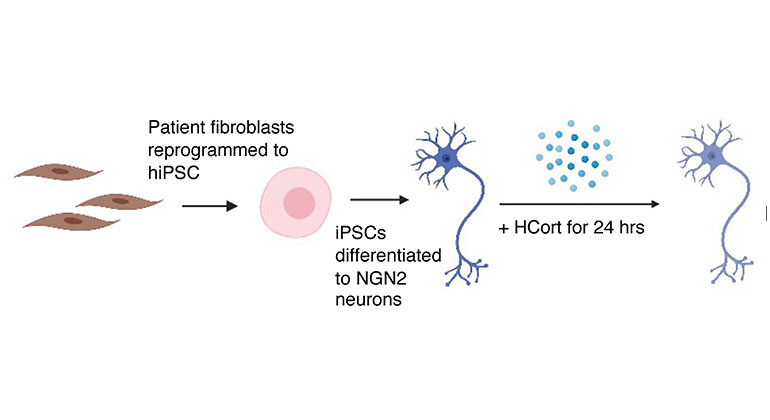
Stem Cell Study Reveals How Neurons From PTSD Patients React to Stress
Oct 20, 2022 View All Press Releases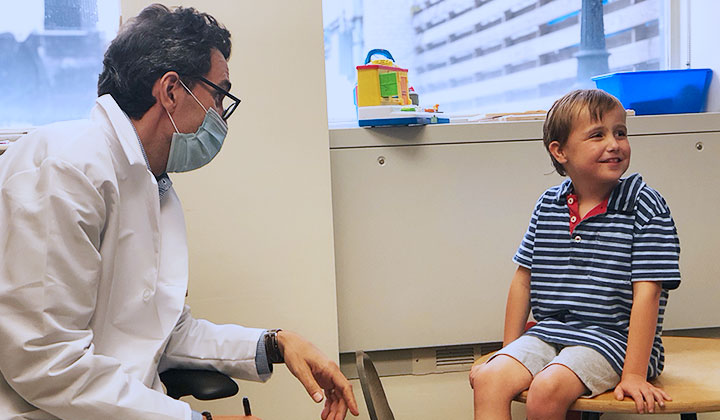
New Study Suggests Ketamine May Be An Effective Treatment for Children with ADNP Syndrome
Sep 06, 2022 View All Press Releases


